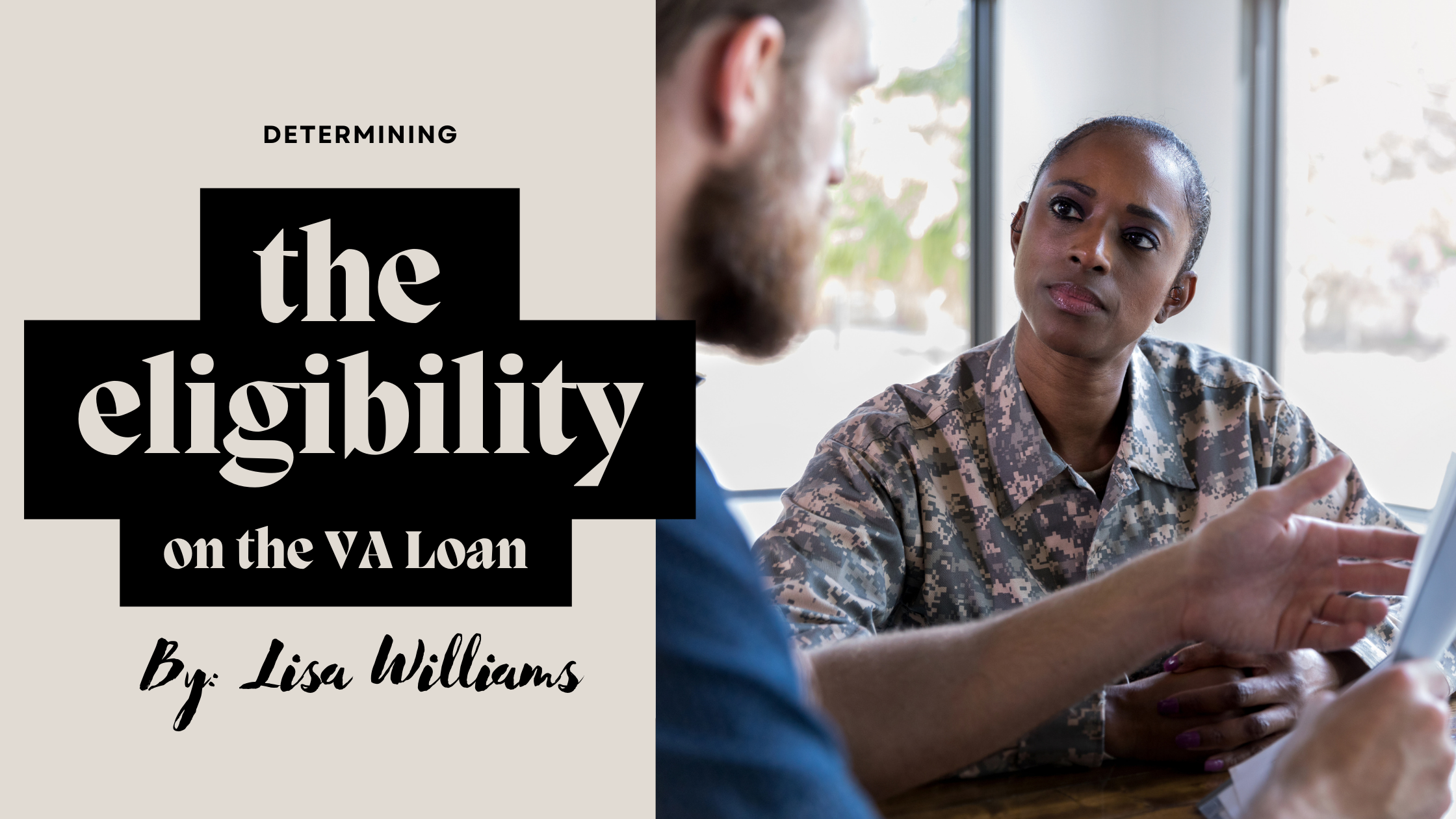Determining Eligibility on a VA Loan

Determining eligibility for a VA (Veterans Affairs) loan involves assessing whether an individual meets the specific service requirements set by the Department of Veterans Affairs. Here are the general steps to determine eligibility for a VA loan:
1. Verify Military Service:
- Active Duty Service Members: Generally, individuals who are currently serving on active duty must have served for at least 90 consecutive days during wartime or 181 days during peacetime.
- Veterans: Veterans must have been discharged under conditions other than dishonorable and have completed the minimum service requirements, which vary depending on the era in which they served.
- Reservists and National Guard Members: Members of the Reserves or National Guard need to have completed at least six years of service or have been called to active duty in a qualifying capacity.
2. Determine Wartime or Peacetime Service:
- Wartime service refers to periods of conflict as defined by the VA. Peacetime service is during periods when the United States was not officially at war. The specific dates for these periods can be found on the VA website.
3. Calculate Eligibility Periods:
- The length of service required varies based on whether the service occurred during wartime or peacetime. For example, during wartime, veterans generally need 90 consecutive days of service, while during peacetime, they may need 181 days.
4. Check Eligibility for Different Groups:
- Different groups of individuals, including veterans, active-duty service members, National Guard members, Reservists, and certain surviving spouses, may be eligible for VA loans. Ensure that you fall into one of these eligible categories.
5. Obtain the Certificate of Eligibility (COE):
- The Certificate of Eligibility (COE) is a crucial document that officially confirms your eligibility for a VA loan. You can apply for the COE online through the VA's eBenefits portal, or your lender can assist you in obtaining it. The COE will indicate your eligibility status and provide details such as the length and character of your service.
6. Consult with a VA-Approved Lender:
- Your lender plays a crucial role in helping you determine eligibility. VA-approved lenders are well-versed in the VA loan process and can assist you in understanding the specific requirements and documents needed for eligibility verification.
7. Appeal Process for Denied Applications:
- If your application for a VA loan is initially denied, you have the right to appeal the decision. The appeal process involves providing additional information or documentation to address the reasons for the denial.
Important Points to Note:
-
Surviving Spouses: Certain surviving spouses of deceased veterans may also be eligible for VA loans. They typically need to meet specific criteria outlined by the VA.
-
Character of Service: To be eligible, veterans must have been discharged under conditions other than dishonorable.
-
Periods of Service: The specific length and periods of service required can vary depending on factors such as when the individual served and the nature of their service.
It's crucial to consult the official VA guidelines and, if needed, seek assistance from a VA-approved lender to ensure accurate determination of eligibility based on your unique circumstances.


